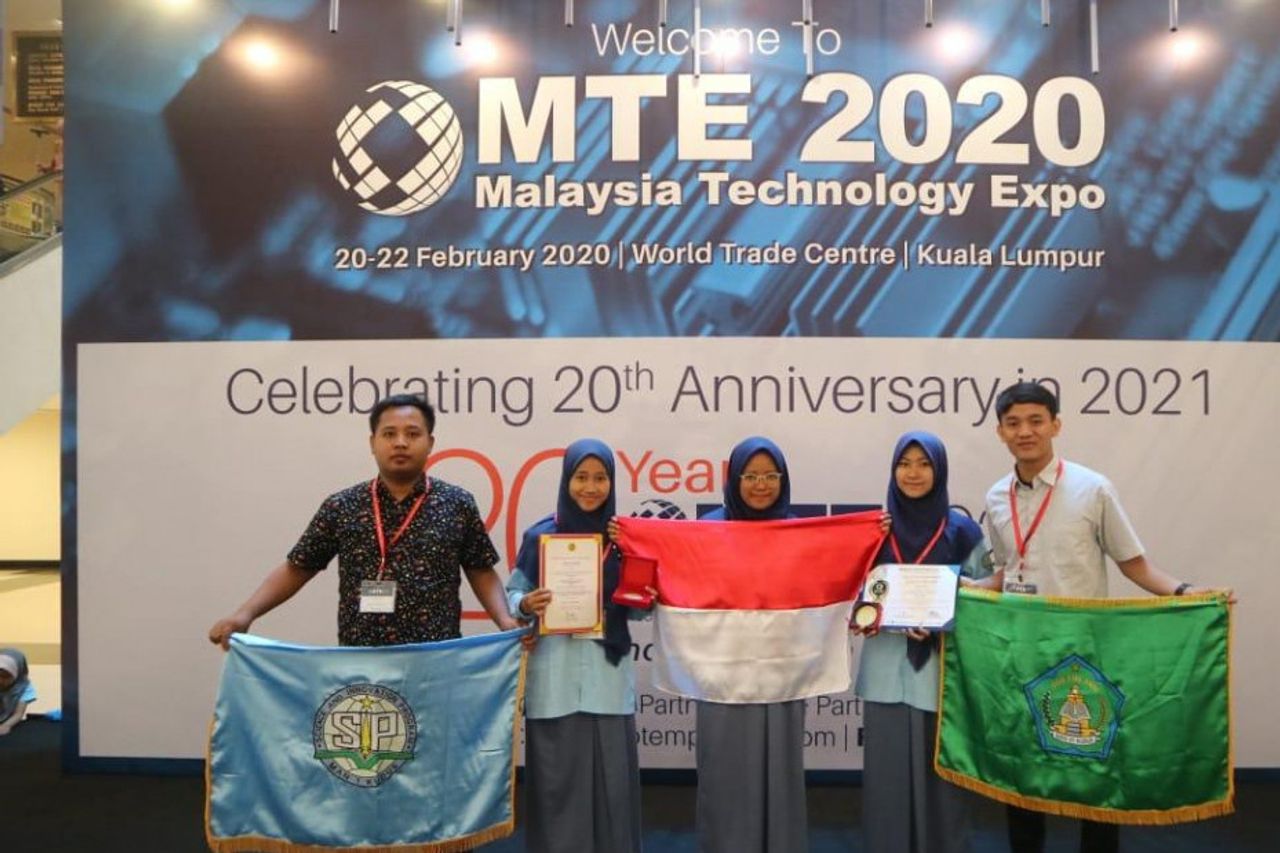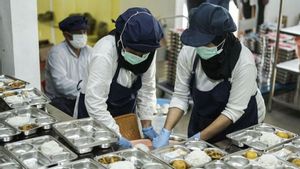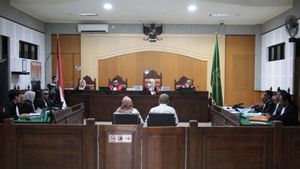The Plastic Made From Cassava And Canna Made By MAN Kudus Students Won The Malaysia Technology Expo

JAKARTA - The research team of MIPA Science and Innovation (SIP) MAN 1 Kudus won a gold medal and a special award at the Malaysia Technology Expo (MTE) competition which was held at the Putra World Trade Center, Kuala Lumpur, Malaysia 20-22 February 2020. MTE was joined by the team from 10 countries, namely, England, Croatia, Malaysia, Taiwan, Iran, India, Vietnam, Thailand, Poland, and Indonesia.
At MTE 2020, the MAN 1 Kudus Research Team presented its innovation in the form of "E-NYOCAF": Edible Film From Canna Flour (Canna Discolor) and Mocaf (Modified Cassava Flour) Based on Glycerol Palsticizer as Biodegradable Packaging Innovation. Edible film made from canna flour and mocaf The result is an environmentally friendly plastic that is easily biodegradable.
"This innovation is in the form of environmentally friendly plastic because it is easily degraded compared to other plastics," explained the Head of MAN 1 Kudus Suhamto in a statement quoted from the Ministry of Agriculture.
The E-NYOCAF MAN 1 Kudus team consists of Laila Fitriya Muthoharoh, Faliha Ibriza Tsaniya, and Niken Ayu Khoirun Nisa. As mentors, Ahmad Edi Darmawan and Arif Noor Adiyanto.
Suhamto appreciates the success of the E-NYOCAF MAN 1 Kudus team in the MTE event because this is the second international achievement in 2020. Previously, the MAN 1 Kudus team also won a Bronze Medal and a special award from Canada at TID-IPITEx, 2-6 February in Bangkok, Thailand.
Separately, Laila Fitriya conveyed that the idea of finding E-NYOCAF was motivated by the very high use of plastic packaging in Indonesia. In fact, plastic is an environmentally unfriendly material and it takes hundreds of years for microbes to be able to recycle plastic waste. With the existence of E-Nyocaf, it is hoped that it can replace plastic made from PEP which is not easily biodegradable.
"The advantage of E-NYOCAF as a packaging is that it can decompose within 7 days compared to plastic from a factory which takes 100 days," he explained.
Ahmad Edi Darmawan as the supervisor added that the making of this Edible Film has been carried out by Tensile Strength test (solubility test), Elongation (lengthening test), Thicknes (Thickness test), WVTR (test to determine the fast rot), WVP (shelf life test or edible life. film), and Solubility (degradation test).
"E-NYOCAF's form is still sheet plastic. E-NYOCAF's edible film is currently in sheet plastic form. In the future, it will be developed into plastic bags," said Ahmad.


